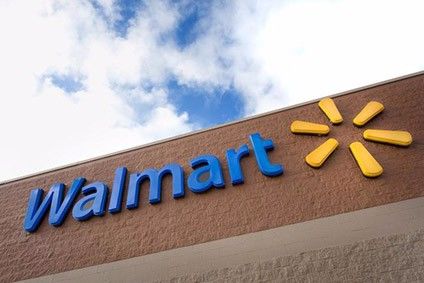
US retail giant Walmart is reportedly kicking back at CPG manufacturers following a series of price hikes to counter inflationary cost pressures.
In an interview with news agency Reuters, Rod Little, the CEO of Schick razor maker Edgewell Personal Care Co., said it “will be very difficult” to pass further price increases on to retailers.
Meanwhile, Burt Flickinger, managing director at retail consulting firm Strategic Resource Group, told Reuters that “retailers like Walmart will say ‘hey, you already had three rounds of price hikes last year, why are you giving us another?’”
Little was cited as saying: “[Walmart] said to us, ‘from here, our consumer is challenged, we’re going to be looking out for consumers, so you’re going to have to have really good reasons if you’re going to price up from here’.
“Because the consumer is now under more pressure, and Walmart is under pressure, that sets up a dynamic where there’s probably not a lot of pricing going forward.”
Just Food has approached Walmart for comment as the retailer was not directly quoted in the Reuters’ report. The publisher said Walmart had not responded to a request for comment at the time of writing.
Potential retailer backlash over a slew of price increases by food manufacturers to recover costs has been the subject of scrutiny by many analysts on recent conference calls with producers. Most however, including Unilever last week, continue to argue they are seeing limited elasticities to price hikes, although consumer demand for private-label products has been gaining traction.
Nevertheless, food manufacturers’ volumes have been taking a hit. Unilever, for instance, clarified last week that it increased prices by 11.3% in 2022 and 13.3% in the fourth quarter alone. But volumes fell 2.1% over the 12 months.
Addressing analysts last week, Unilever CFO Graeme Pitkethly said “price growth” is expected to remain “elevated” in the first half of the 2023 financial year, adding to that to date elasticities across the group’s operations “remain stable”.
Mondelez International was another food maker to stress limited elasticities to price, although the snacks and confectionery firm has encountered “customer disruption” in Europe.
Its CFO Luza Zaramella said earlier in February that despite a “small uptick in elasticity” in quarter four, the “European consumer has continued to hold up well and the preference for snacking and trusted brands remains strong with elasticity levels below normal”.
He added: “Besides the benefits of our pricing execution, the consumer remains resilient and elasticity continues to be well below normal levels.”
As far back as last summer, US food major Kraft Heinz halted supplies to Tesco in the UK in a spat over price.
Then in January, Tesco chairman John Allan, speaking in an interview with the BBC, drew the wrath of the food industry by suggesting manufacturers could be taking advantage of the inflationary environment to increase prices.
Allan said Tesco had “fallen out” with a number of suppliers after “robust” discussions over requests on prices the supermarket had challenged.
The Tesco leader told the broadcaster that the company had “fallen out” with several food suppliers after “robust” discussions over price requests that the supermarket refused to accept.
The statement sparked outrage amongst the interested parties, and it was discredited by several industry bodies.
In response, Minette Batters, president of the UK’s National Farmers’ Union (NFU) said she was “slightly baffled”, by Allan’s comments, saying “it was almost like he was living in a parallel universe”.
Director general of Provision Trade Federation, Rod Addy accused the Tesco boss of “sabre-rattling”.
Industry bodies hit back after Tesco chairman’s food price hike comments
